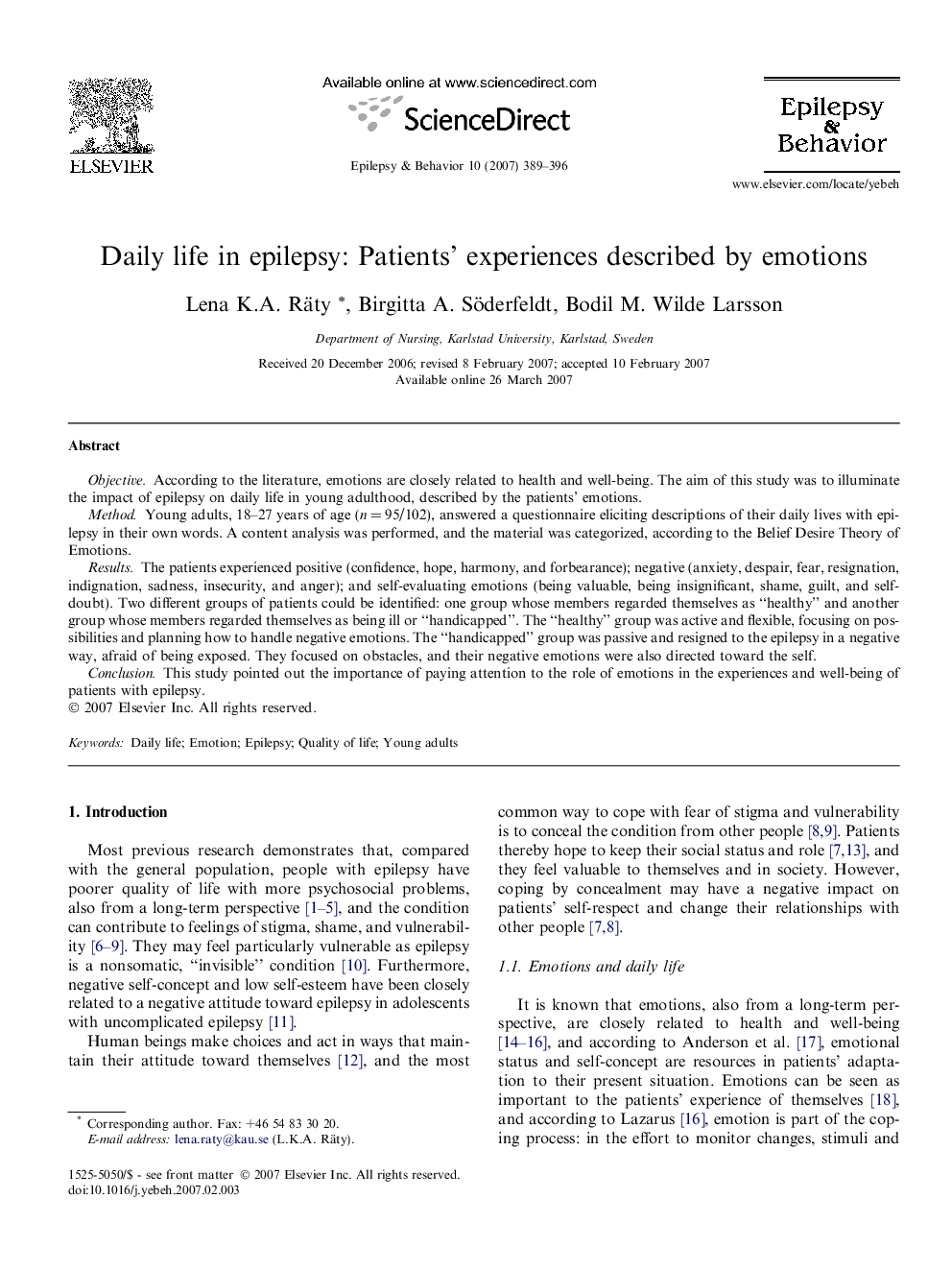| Article ID | Journal | Published Year | Pages | File Type |
|---|---|---|---|---|
| 3051340 | Epilepsy & Behavior | 2007 | 8 Pages |
ObjectiveAccording to the literature, emotions are closely related to health and well-being. The aim of this study was to illuminate the impact of epilepsy on daily life in young adulthood, described by the patients’ emotions.MethodYoung adults, 18–27 years of age (n = 95/102), answered a questionnaire eliciting descriptions of their daily lives with epilepsy in their own words. A content analysis was performed, and the material was categorized, according to the Belief Desire Theory of Emotions.ResultsThe patients experienced positive (confidence, hope, harmony, and forbearance); negative (anxiety, despair, fear, resignation, indignation, sadness, insecurity, and anger); and self-evaluating emotions (being valuable, being insignificant, shame, guilt, and self-doubt). Two different groups of patients could be identified: one group whose members regarded themselves as “healthy” and another group whose members regarded themselves as being ill or “handicapped”. The “healthy” group was active and flexible, focusing on possibilities and planning how to handle negative emotions. The “handicapped” group was passive and resigned to the epilepsy in a negative way, afraid of being exposed. They focused on obstacles, and their negative emotions were also directed toward the self.ConclusionThis study pointed out the importance of paying attention to the role of emotions in the experiences and well-being of patients with epilepsy.
